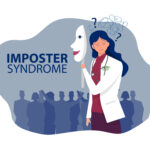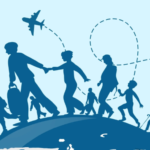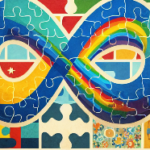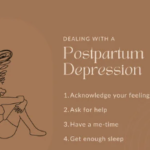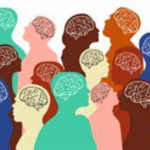Remember The Silent Struggle. Imagine this: you are a parent in Nigeria, excitedly watching your child grow. Then, one day, you notice something different. Your child is not responding to their name, avoiding eye contact, or struggling to express themselves. You ask yourself, “What is happening?” You begin seeking answers from friends, family, and even traditional healers, only to be met with confusing explanations.
Autism isn’t a topic most people in your community understand, and instead of empathy, you are often met with blank stares or whispers about curses and spiritual issues.
This is a reality many African parents face when they discover their child has autism. Autism Spectrum Disorder (ASD) is a neurodevelopmental condition that affects communication, behavior, and social interaction.
While autism is a recognized and studied condition worldwide, in many parts of Africa, particularly in Nigeria, there’s still a pervasive lack of awareness and understanding.
In this article, we will dive into the unique challenges African parents face when raising children with autism, as well as the resilience and triumphs that often emerge from these experiences.
Understanding Autism in the African Context
If you’re raising a child with autism in Africa, you’re not just navigating the complexities of the condition—you’re also grappling with cultural misconceptions. In many communities, autism is seen through a spiritual or superstitious lens, with some believing it’s a curse, a punishment for sins, or even the result of witchcraft.
The following was stated in an article published by the University of Cape Town, South Africa, (Autism in an African context): “There haven’t been any studies of the prevalence of autism anywhere in Africa, for example”.
The article added, “This is despite the prediction that 40% of the world’s children will live on the continent by 2050 and that 1–2% of them are likely to have autism or a related autism spectrum disorder.”
This perception can lead parents down dangerous paths, seeking solutions from traditional healers or spiritual leaders who promise to “cure” the condition through rituals, exorcisms, or herbal concoctions. Such practices not only waste time but can also harm the child, both physically and emotionally.
Autism is often misunderstood because it’s not as visually obvious as other disabilities. Children with autism can look perfectly healthy, but their behaviors—like repetitive movements, lack of speech, or difficulty socializing—often lead to them being labeled as “stubborn,” “spoiled,” or “possessed.”
This adds another layer of difficulty for parents, as they must navigate these misinterpretations while advocating for their child’s needs.
Another critical challenge is the lack of diagnostic services. In Africa, only a few specialists are trained to identify and manage autism, and they are often concentrated in urban areas.
If you live in a rural community, accessing these services becomes nearly impossible. As a result, many children go undiagnosed for years, delaying crucial early intervention that could significantly improve their quality of life.
The Emotional Toll on Parents
Parenting a child with autism can be emotionally overwhelming, especially when you’re unsure of what to expect. You may initially feel shocked, confused, or even guilty, wondering if you did something wrong during pregnancy.
The reality is that autism is not caused by parenting style or any individual action, but this fact is not widely understood in many African societies.
As you come to terms with your child’s diagnosis, you’ll likely encounter feelings of isolation. Many parents describe the experience as a “silent struggle,” where you’re left to cope with the condition alone because your community doesn’t understand or accept autism.
Social gatherings, religious functions, and even family events can become sources of stress when your child exhibits behaviors that others find unusual or disruptive. The constant need to explain and defend your child can be exhausting, leaving you emotionally drained.
In some cases, this strain takes a toll on marriages and family dynamics. Mothers, in particular, often bear the brunt of caregiving, with societal expectations that women are responsible for the well-being of the child.
Fathers may feel helpless, unsure of how to connect with their autistic child, or may even distance themselves, leaving mothers to navigate the journey alone.
Financial Strain: The High Cost of Care
If you are a parent of a child with autism in Africa, you are also likely familiar with the financial burden. Managing autism can be incredibly expensive, especially when it comes to therapies like speech therapy, occupational therapy, and behavioral interventions.
In Nigeria, where public healthcare for autism is grossly limited, these services are often only available through private institutions, which charge exorbitant fees. For a family already living on a modest income, these costs can be crippling.
Beyond therapy, there’s the challenge of finding suitable schools. Inclusive education remains rare across much of Africa, and schools that cater specifically to children with autism are few and far between.
This often forces parents to either homeschool their child or pay for costly private education that offers the necessary support. For many families, choosing between their child’s education and meeting other basic needs becomes an unavoidable reality.
In a publication, ‘Autism in Africa: The Critical Need For Life Saving Awareness’ by Ugoji A. Eze Esq, a United Nations Consultant, you will read that “In Nigeria, there is increasing concern over the rise in cases of autism spectrum disorders (ASD). Yet, the level of awareness about autism in Nigeria is pathetically low.”
The financial burden is compounded by the fact that many mothers are forced to leave their jobs to become full-time caregivers. Without social welfare systems or government support, this often leads to financial dependency, with single-income households struggling to make ends meet.
The pressure of meeting both the emotional and financial needs of the family can be overwhelming, but many African parents find creative ways to adapt and overcome these challenges.
Stigma and Social Isolation
One of the greatest hurdles parents of children with autism face in Africa is the societal stigma. In many cultures, children with autism are viewed as a source of shame, and families are often advised to hide them from the public eye.
The fear of being ostracized or shamed can prevent parents from seeking the help and support their child desperately needs.
Schools are often unprepared to accommodate children with autism, and many parents face rejection from educational institutions. Even in communities where schools are legally obligated to accept children with special needs, the lack of trained teachers and inclusive facilities means that autistic children are frequently neglected or excluded from meaningful participation in the classroom.
The stigma doesn’t stop at school gates. Many religious institutions, which form the bedrock of African social life, fail to provide inclusive environments.
This can be particularly painful for parents who rely on these spaces for emotional and spiritual support. But in recent years, there has been a slow but growing movement to challenge these harmful narratives.
Triumphs: Stories of Resilience and Hope
Despite these immense challenges, many African parents of children with autism demonstrate remarkable resilience. Take, for instance, Nigerian mothers who are starting grassroots movements to raise awareness about autism.
They organize community seminars, share their stories on social media, and connect with other parents facing similar struggles. These parents are becoming advocates not just for their own children, but for a generation of children who need acceptance and support.
Organizations like Royal School of Education Therapy Foundationin in Abuja founded by Dr. Badewa T. Adejugbe Wiiliams and the Patrick Speech and Languages Centre in Lagos founded by Mrs Dotun Akande to mention a few have become the hope for families seeking help. These centers offer diagnostic services, therapy, and education for children with autism, filling a gap that public institutions have failed to address.
Across Africa, more parents are also turning to technology, using online platforms to educate themselves and find therapies that can be done at home with minimal resources.
Practical Solutions for Parents
Raising a child with autism in Africa requires resourcefulness and resilience. Here are some practical tips for parents navigating this journey:
- Educate Yourself: Seek out reliable information on autism through online resources, books, and support groups. Knowledge is power, and understanding your child’s condition will help you become a better advocate for their needs.
- Build a Support Network: While community understanding may be limited, you can connect with other parents through local or online autism support groups. These networks offer advice, emotional support, and practical solutions.
- Utilize At-Home Therapies: Given the high cost of professional therapy, many parents use free or low-cost online resources to implement speech and behavioral therapy at home. Consistency and patience are key to making progress.
- Advocate for Inclusion: Whether it’s working with your child’s school to create a more inclusive environment or organizing awareness campaigns in your community, small efforts can lead to meaningful change.
Conclusion: A Call for Action and Hope
The journey of parenting a child with autism in Africa is filled with challenges, from financial burdens to societal stigma. But amid these difficulties, parents also find moments of triumph and joy.
Their resilience and advocacy are slowly breaking down the barriers that have long silenced discussions around autism on the continent.
To truly support these parents and their children, there is an urgent need for governments to step in and provide accessible healthcare, education, and social services for those living with autism.


